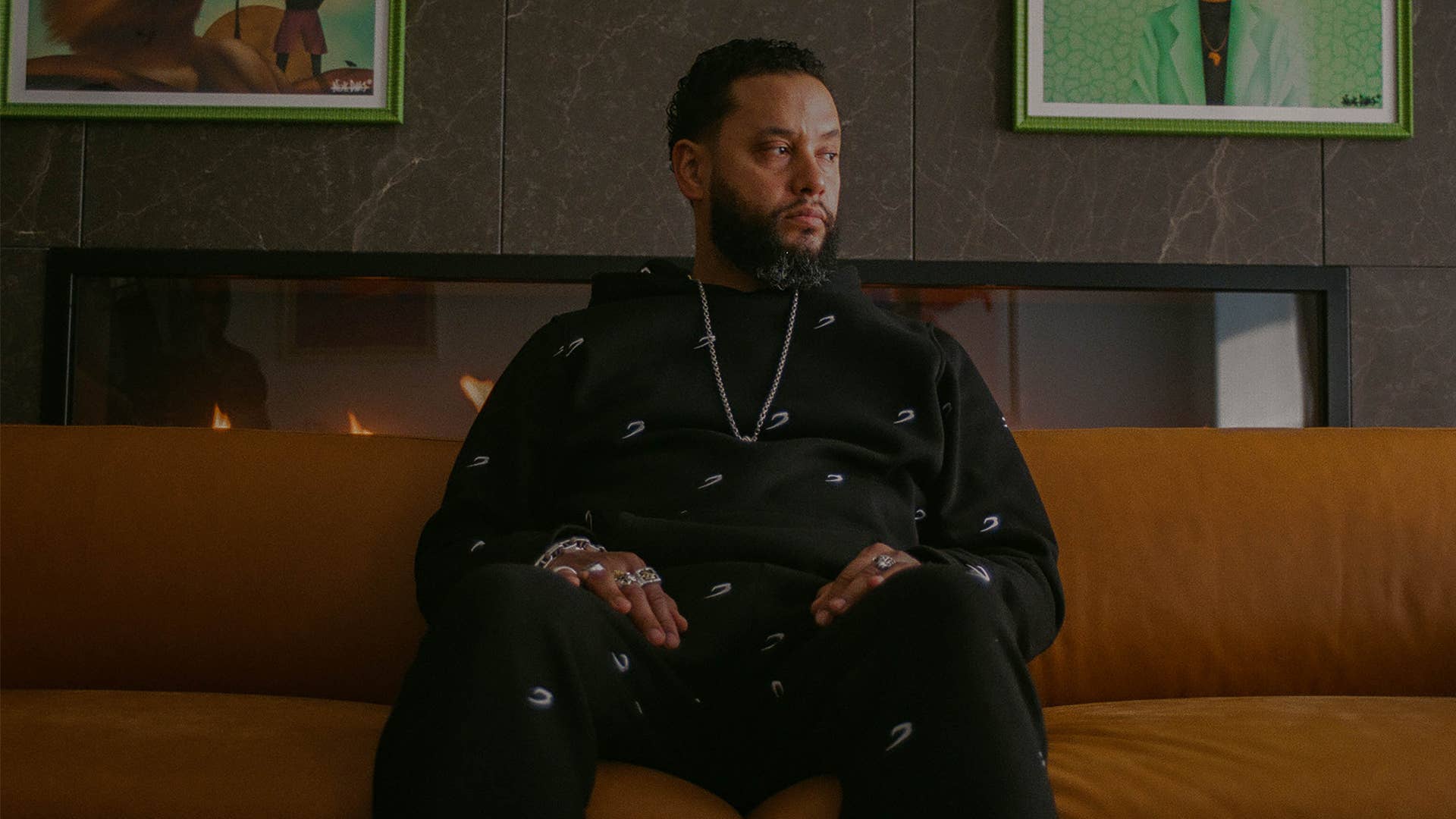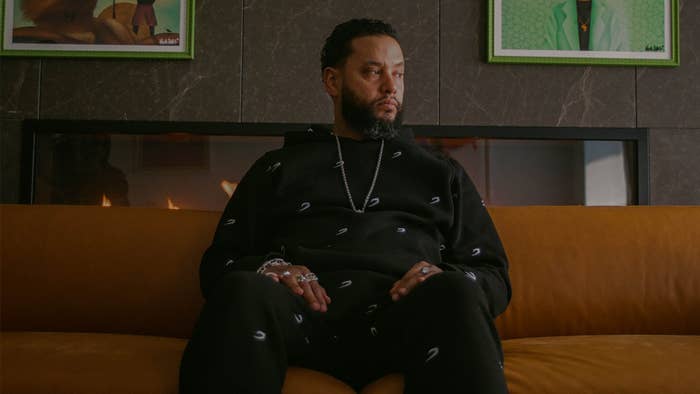
When most people think of Director X, his iconic music videos come to mind. From Drake’s wedding-themed “Falling Back” to Future and Drizzy’s “Life is Good,” the filmmaker is well known for his work behind the camera.
But as passionate as he is about directing, he’s equally passionate about doing something to solve Toronto’s gun violence problem. And he sees meditation as a solution, due to its ability to re-shape the parts of the brain responsible for aggression. “Our kids have rage issues. They are traumatized,” he says. “The stress of living in these environments damages the brain. It shrinks the prefrontal cortex and enlarges the amygdala.”
This year alone, there have been 238 shootings or incidents involving firearms in Toronto, and 27 of those incidents resulted in death, according to Toronto Police data. It’s a number that’s risen from the 231 shooting and firearm-related incidents that occurred in 2021. And while shootings are up, the ages of those involved with gun violence have decreased: Ardavan Eizadirad, an assistant professor in the Faculty of Education at Wilfrid Laurier University and Gowri Raj Varma, a student in development studies at the Indian Institute of Technology, wrote in the Toronto Starthat “the average age of those linked to gun violence in Toronto between 2015 and 2020 was 25 years of age, but in 2021, that average dropped to 20.”
With more shootings and more young people getting caught in the crossfire, Director X and Danell Adams co-founded Operation Prefrontal Cortex with the hopes of decreasing violence and aggression through meditation.
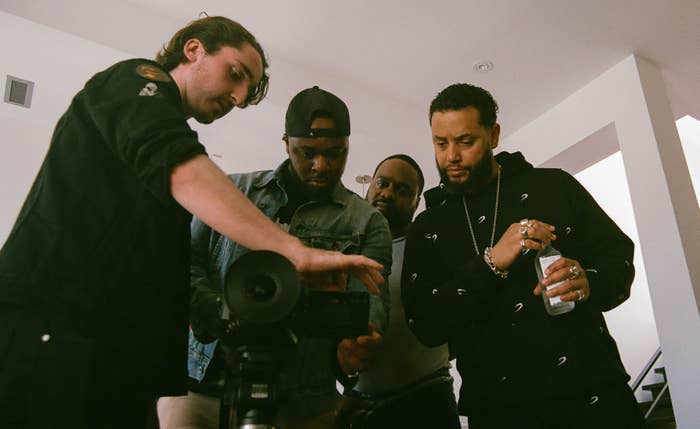
Through a new guided meditation series, viewers can participate in five-minute guided meditations to help support their mental health. Local Toronto artists such as Zenesoul are involved in the project through individual episodes, providing a direct link to communities in the city.
“Meditation is something that is often times overlooked but is so important,” Zenesoul shares. “Taking time to be still is very important, especially with everything that has been going on around us. It’s hard to find moments where we’re not thinking about our problems and stressors. Inflation, COVID, violence, just so much happening at once.”
“By taking time to breathe [and] relax the mind and body, we are actually allowing ourselves to refresh. Doing this meditation is one of my ways of using my voice. I’ve been told many times that it’s soothing,” she says. “Using it to help the community and bring about awareness for mediation was a no-brainer for me. [I’m] so glad I could be part of the team to bring this series to life.”
We chatted with Director X—who was just added to Canada’s Walk of Fame—to discuss his meditation journey, his thoughts on handgun legislation in Canada, and his hopes for how Operation Prefrontal Cortex can support Torontonians.
So you got shot in 2015, and since then you’ve spoken out a lot about the importance of meditation and preventing gun violence. So how does this new series support the work that you’ve been doing over the years with Operation Prefrontal Cortex?
You know, meditation can be intimidating. Some people, they hear the word meditation and say, “How do I do that, is it going to be wrong, do I need to clear my mind...” You know, all the preconceived notions. And to be honest as well a lot of Black people, a lot of people of colour, don’t perceive it as something that’s open to them. [That’s] not to say… there’s clearly tons of Black folks that meditate. And we wanted to make that clear.
So people would see themselves, especially younger people [and go] OK, let me try this. And there’s a lot of different styles. Once you get past saying “let me try this” you got to find something that works. What [you’re] doing is just a brain exercise, right? [It’s] just like any normal exercise. Some people like weights, some people like to run, and some people like to walk. Some people like a treadmill, you know what I mean? Some people like spin bikes. I could go on and on about the different types of exercise, but meditation is the same kind of thing. I do a kind of visualization meditation, some people do just deep breathing. You’ll find something that’s yours.
You know, I have a friend who, I gave him my guided meditation, the one I do. Then he got into this kind of Whim Hof breathing, [a] technical kind of breathing meditation. [He] loves it, it’s changed his life. He’s got everyone doing it and preaching all about it. So this was what we were looking to find, this kind of attention. This has been what we’re looking to do. The [Operation Prefrontal Cortex] co-founder Danell Adams has been talking about this a lot and finally just got tired of waiting for the rest of us to get it done. [He] just got to it and started shooting these things. Hopefully, people really get a chance to see how easy it is and find something that works for them.
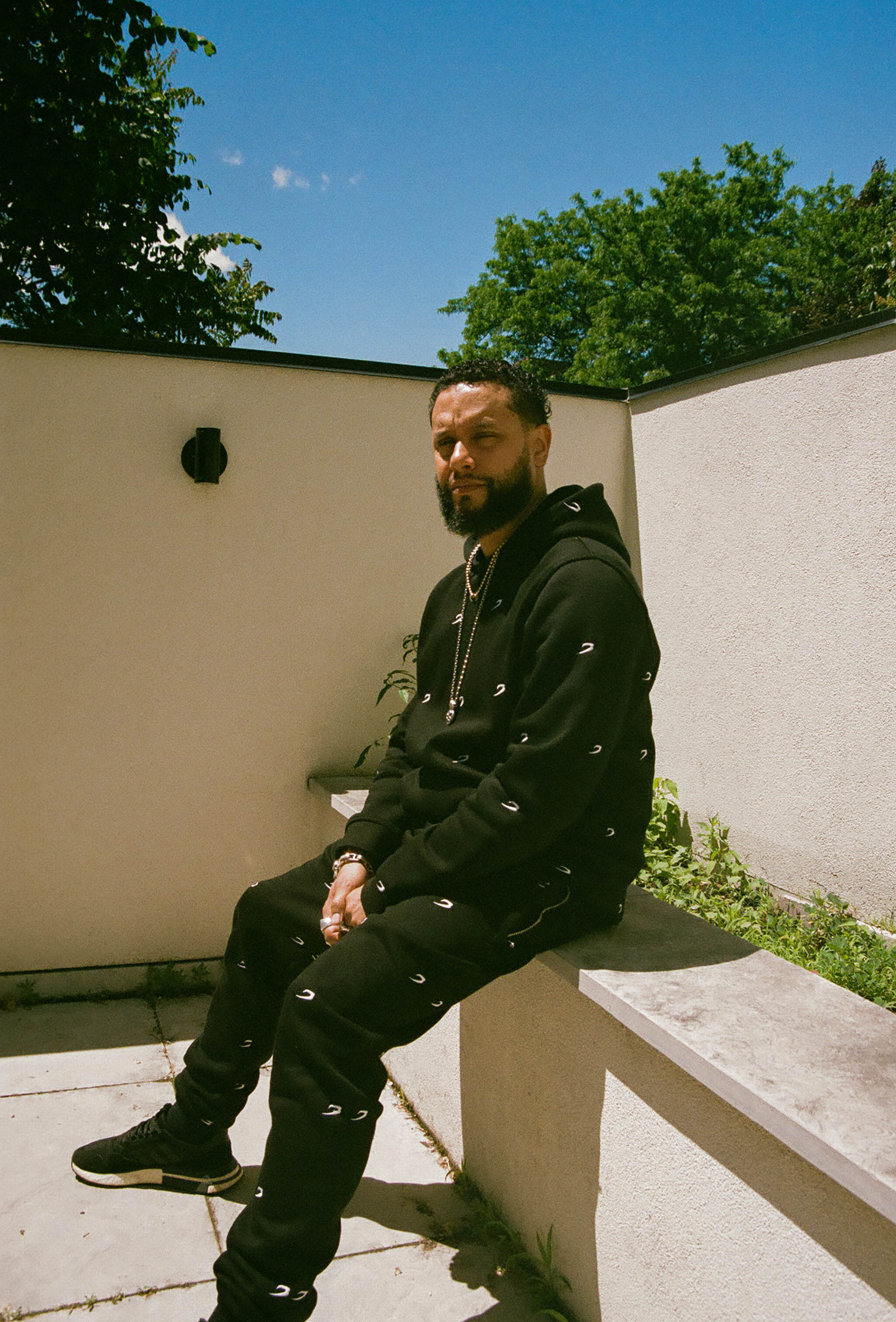
“So for the young people now, if they take one bit of grown-up advice, it’s start meditating—two is go see a chiropractor.”
So kind of going off of that a little bit, since the series is ideal for those people who’ve maybe never tried it before or they’re beginners who are just getting into it, or for the ones who are maybe skeptical or nervous about trying it, what’s something that you want them to know before they go into this?
This is just brain exercise. It’s the same as going out for a walk. Everyone understands the need for physical exercise and you need mental exercise. This is mental exercise. Close your eyes and just [be] in your own head, right? Whether that’s clearing thoughts or kind of focusing on your breathing or counting numbers or visualizing something, this mental exercise is very, very important. And that’s really it, it gets your brain in shape.
You know, you’ve got to get your body in shape. Your brain does change when you meditate The prefrontal cortex gets bigger. That’s [the] decision-making part of your brain, and your amygdala gets smaller. That’s your emotional control, your gut. So just like when you exercise, your muscles get bigger and your gut gets smaller. Well, the exact same thing happens in the brain, your brain muscles get bigger. All the parts that need to get bigger, get bigger and all the parts that should get smaller, get smaller, giving you way more emotional control.
[This] is why this all comes back [to] gun violence and aggression in general. The more you meditate, the more we can move that ‘snap’ point. It’s not like you never get it. But what might have been a tantrum or what might have been an explosion of rage can become… you can bring it down. And, you know, this is the important stuff. I don’t want to get all into how the prefrontal cortex and amygdala work together, but it’s very, very important.
And so the series features a lot of different local artists, so Zenesoul, for one. So how did their involvement come to be with this?
That’s those who [are] plugged into the community. We knew that we wanted to bring some people in that people could recognize and, say, “Oh, OK, I know who you are, I got some connection to you, let me give this a shot.” [Not] just a complete stranger. Sometimes we can, you know, [showcase] people without a super large following or anything like that, just regular folks. But again, I think that’s where the beauty of showing people [is]. That it can be anybody. This isn’t some celebrity thing or anything like that. Just anybody can do it. Do you meditate?
I should. I get very stressed, so I definitely should.
You should. Well now you’ve got a bunch of guided meditations to choose from.
“If a kid is looking at my life and saying, ‘Oh, wow, you’ve done alright X.’ [To that I say] yeah, you should meditate. Not, you should hustle more. You should meditate as early as you can, [and] make that part of your daily practice.”
Yep, resources for people of colour like me. I’ll give it a go. And so the goal here is to make Toronto a more safe, welcoming city. But obviously, we do know that gun violence is still very much a problem. So in the next few years, what’s something that you really hope that Operation Prefrontal Cortex can continue to do with [your] work in the community?
Really reach the schools, have more schools, say, “OK, we’re doing this with our students.” And that can really change a generation because once they get past… normal stuff that kids are dealing with—I was a very rage-filled kid when I was a teenager, just normal young boy stuff. And had I been meditating, had that been brought to me, I think my life would have been not completely different, but far better. I think I would have really progressed in certain ways. My anger, this temper of mine, looking back, I don’t know every place it held me back but it must have. So to have that under control, not be flying into a rage, just all that stuff.
So for the young people now, if they take one bit of grown-up advice, it’s start meditating—two is go see a chiropractor [laughs]. Take care of your back. [It’s important] to take care of your back. This is my big grown-up advice for you. If you do these two things early, it’s right up there with starting a retirement fund. Right up there. I mean, literally, I’m not exaggerating.
I believe you.
Meditation, chiropractor, retirement fund. You’re on your way kid, your future is bright.
You literally sound like my mother.
I’m telling you. But again, we know these things, right? This is the big one. If a kid is looking at my life and saying, ‘Oh, wow, you’ve done alright X.’ [To that I say] yeah, you should meditate. Not, you should hustle more. You should meditate as early as you can, [and] make that part of your daily practice. And yeah, just everything improves from that point on.
So clearly for you, it’s obviously improved your quality of life and mental wellbeing. Is this something that you take the time to do every single day? Do you carve out space for that?
Yeah, I try to do 15 minutes in the morning unless there’s, you know, a real big thing I gotta go do like a set I need to be on or something along those lines. That’s how I like to do things. And as well, because I didn’t see a chiropractor early enough, I have back issues. So getting up early in the morning and sitting up and meditating actually calms down the muscles in my back and makes it much easier for me to move around. So see what I’m saying? Meditation and chiropractors.
“We need to be addressing what makes these young people feel that the solution to the problem is killing them.”
I low-key have scoliosis, so now I’m like damn, I actually really have got to do this.
We’re on the phone so much or sitting in cars, just our lifestyle, the things we do… it’s all bad. And look, I messed up and exercised the wrong way. So running on the treadmill and not knowing what you’re supposed to be doing… exercising wrong is worse than not exercising at all.
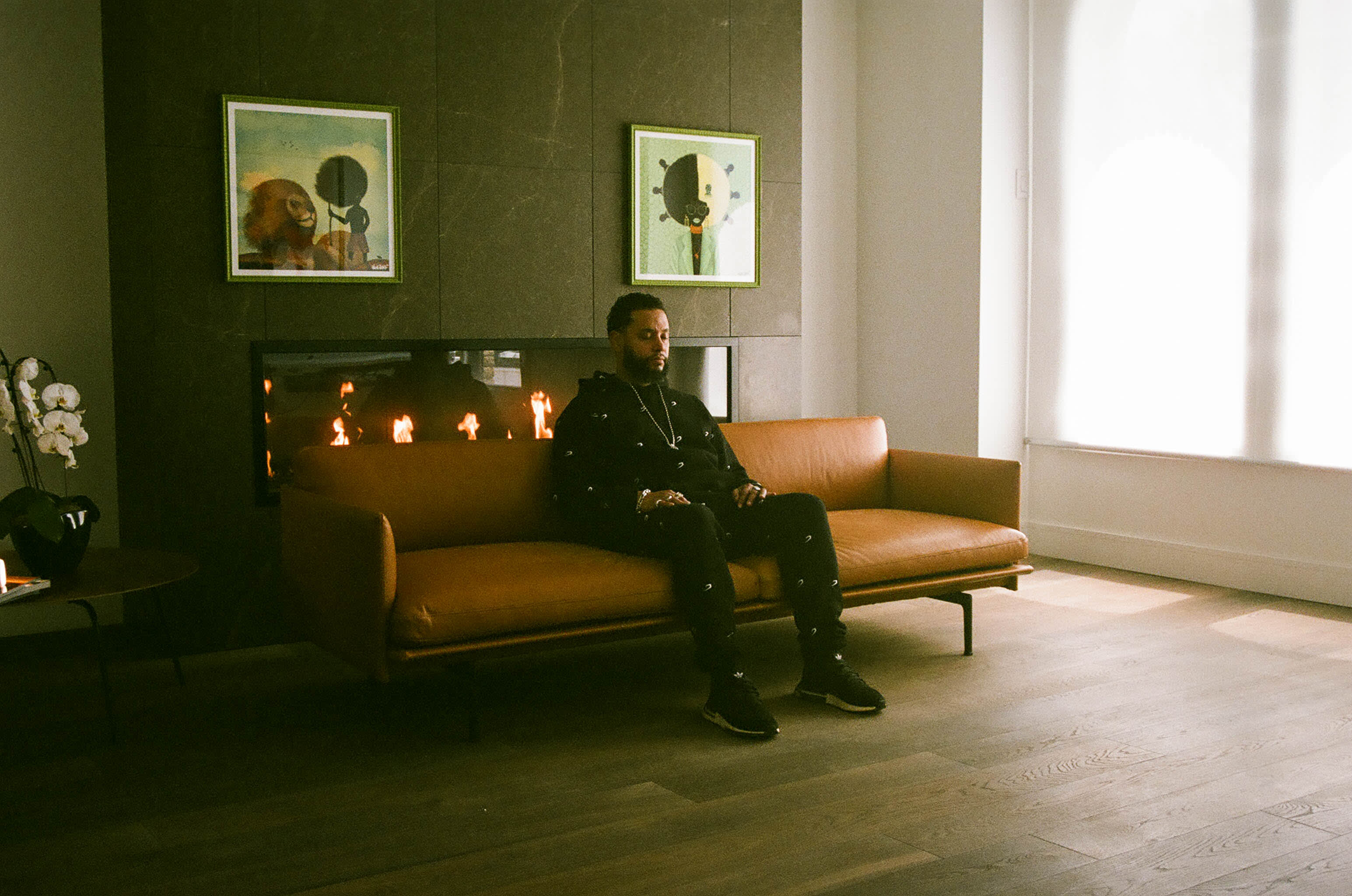
Words of wisdom. Also, very true. I was checking the time and I [have time for one] other thing. So do you have any thoughts on Bill C-21, which is the proposed bill to strengthen the laws around handguns? Part of the reason why I ask this is people don’t always see legislation as a perfect solution, especially because with gun violence, it’s usually carried out by people who have obtained guns illegally. So it’s something I’m very curious about.
Yeah. You know, we live next door to a “candy factory” and we can say all we want [that] we don’t want candy getting into [here] or coming in, you know what I’m saying? Back in the day, if you were not a sugar cereal home and the kid next door was a sugar cereal home, you’d get yourself some sugar cereal from next door, you know? And we try all we want to not be a sugar cereal home, but our neighbours [have] their Frosted Flakes and Cheerios and it’s nothing but sugar cereal at the neighbour’s house and they come on over [in] a sneaky way. They’ll have a little bit of it. So, [as] long as we live next door to America, these bills may do some good here or there, sure. But stolen handguns from legal gun owners is not a thing. It happens. But again, what we need to be focusing on is the mindset.
You’re not going to get the guns out of kids’ hands. Kids are living in very dangerous places. They have very real beef with one another. They are trying to kill each other. Things go left, they’ll do it. So trying to tell a kid, “Ah, you can’t do it” … As far as I understand, people with guns I mean, you are in the crime world, you are a professional criminal. That’s why you’ve got a gun. But if you’re just a kid in the street fucking around, you use a kitchen knife. We need to be addressing what makes these young people feel that the solution to the problem is killing them.
“We’ve been abandoned by these politicians. They do things that look good. Let’s have more cops, let’s pass new gun laws. They do the exact same things they have always done. And regardless of where their intentions are or any of these things, it isn’t working.”
That is the root of the issue. I understand. But like chiropractors, you might have an issue—my chiropractor has a client who is a surgeon and his hand is messed up because there was something wrong with his lower back. There’s something wrong with part of his spine. Yeah, it seems crazy that your hand issue is a back issue, but our violence issue is a brain issue.
So this is how we need to approach this. Like mental chiropractics. Our kids have rage issues. They are traumatized. The stress of living in these environments damages the brain. It shrinks the prefrontal cortex and enlarges the amygdala. And people who have a tendency toward violent and aggressive behaviour have smaller prefrontal cortexes and larger amygdala. Their emotions are larger and their decision-making is smaller. And this isn’t just abuse and neglect [doing] this to growing children, [it’s] and stress and trauma doing it to adults.
So if you start confounding that if you’re a kid that grew up in a rough area, you grew up traumatized, and then you’re grown and people are trying to kill you when you go outside, you can understand how this affects the brain. So, again, meditation reverses this. It gives volume to your prefrontal cortex and shrinks your amygdala, doing the exact opposite of the violent and aggressive brain. This is the solution.
Let’s be clear—from what we know meditation does for children, what we know it does for school children, [it] calms a troubled school [and] it excels the academics for students. It is negligence on behalf of our leaders or our politicians to not put this in the schools right now. So this is where we’re at, we have been abandoned by the bureaucracy. We’ve been abandoned by these politicians. They do things that look good. Let’s have more cops, let’s pass new gun laws. They do the exact same things they have always done.
And regardless of where their intentions are or any of these things, it isn’t working. So we have to do it ourselves. You can get your kid and make your kid start meditating. You can start meditating. If you’re a teacher, get your classes to start meditating. If you’re a principal, you can bring it to the school. We can do it ourselves. We do not need them and they’re not coming here for us. We have to make our own way. This is life and death.

